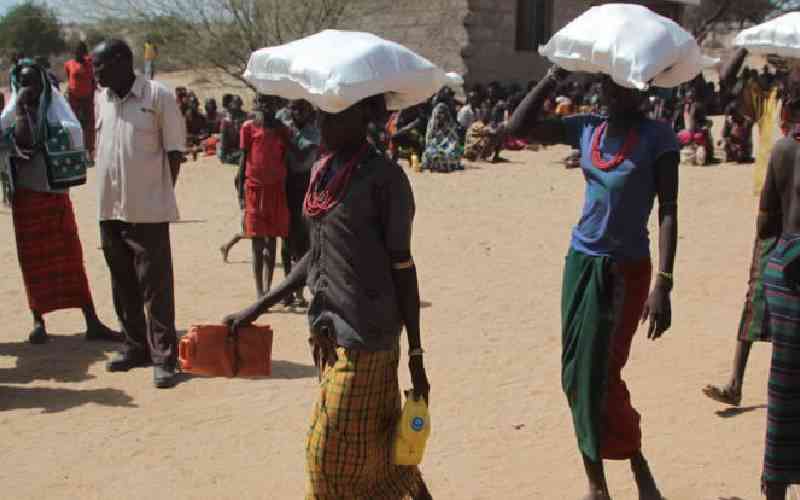
Residents of Illeret village in Marsabit county carry humanitarian aid donated to them by Safaricom, at the area chief's camp. [David Njaaga, Standard]
As Africa's civil society organisations meet in Libreville, Gabon, on Africa Climate Week, the plight of such NGOs must be heard and supported by their stakeholders like the United Nations (UN) and governments by being in the frontline financially and offering technical support for such initiatives in so far as climate crisis is concerned. This process, however, is a precursor to the upcoming round of negotiations on climate change (COP27) in Egypt in November.